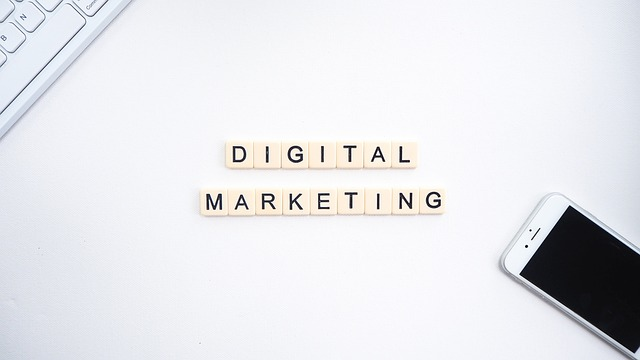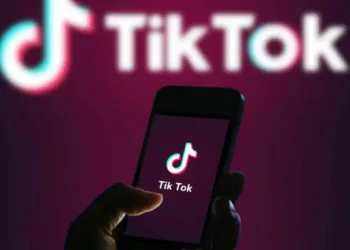The digital marketing space is always changing, a few years ago it was about building a strong presence on Facebook or mastering the art of SEO optimization. But today the digital marketing space has transformed yet again.
New technologies emerge quickly, consumer behaviors shift and established platforms adapt with the agility. For marketers navigating this space, staying ahead of the curve is no easy feat. This article will equip you with the knowledge to traverse the digital marketing space of 2024 with confidence and purpose.
We’ll look into the key trends shaping the current state of digital marketing, from the reign of personalization to the power of AI and video content.

What is Digital Marketing?
Digital marketing refers to all marketing operations that use electronic devices or the Internet. This diverse set of activities tries to connect with potential clients wherever they spend their time online.
The ultimate goal is to increase brand awareness, generate leads, and ultimately drive sales using various strategies such as content marketing, social media interaction, and targeted internet advertising.
Personalization and measurable results are critical in today’s data-driven environment, allowing marketers to tweak their plans and optimize campaigns for optimum impact in an ever-changing digital field.
Beyond basic channels such as email and SEO, the digital marketing toolset continues to grow. Marketers are adopting new technology, such as artificial intelligence (AI) to automate tasks and personalize content.
Short-form video platforms are getting popular, providing innovative methods to captivate attention. The emphasis on delivering a great customer experience across all touchpoints is important.
The Reign of Personalization
The days of general marketing messaging are long gone. Personalized experiences are what today’s customers demand and digital marketing has recognized this trend. Here’s how personalization is becoming popular:
- Hyper-Personalization: Advanced analytics and machine learning are allowing marketers to tailor content, recommendations, and offers to individual user needs and preferences. Imagine an e-commerce store that showcases products a customer is most likely to buy based on their browsing history and past purchases.
- First-Party and Second-Party Data: With the phase-out of third-party cookies, marketers are prioritizing collecting valuable first-party data directly from customers and collaborating with partners for strategic second-party data exchanges. This focus on owned data empowers them to create targeted and relevant marketing campaigns.
The Rise of AI and Automation
Artificial intelligence (AI) is no longer a futuristic concept in marketing, it’s a powerful tool driving efficiency and effectiveness. Here’s how AI is transforming the industry:
- Content Creation and Optimization: AI-powered tools can assist with content creation, from generating topic ideas to optimizing headlines and visuals for maximum engagement. This frees up marketers to focus on strategy and creative direction.
- Automated Ad Campaign Management: AI can streamline ad campaign management by analyzing data, optimizing bids, and targeting the right audience segments in real time. This ensures your ads reach the most relevant users and achieve optimal results.
- Chatbots and Conversational Marketing: AI-powered chatbots provide 24/7 customer support and can personalize interactions based on user queries. This enhances the customer experience and fosters brand loyalty.
The Power of Video Content
Video content is significant in capturing attention and driving engagement. Here’s how video is shaping digital marketing strategies:
- Short-Form Video Explosion: Platforms like TikTok and Instagram Reels offer immense potential for reaching new audiences and showcasing products in a dynamic way. Marketers are creating engaging short-form video content that entertains, educates, and inspires viewers.
- Interactive Video Experiences: Imagine a video ad where viewers can click on specific elements to learn more about a product or service. Interactive video is taking video content to the next level, creating a more immersive and engaging experience for viewers.
- User-Generated Video Content (UGC): Leveraging the power of user-generated video content builds trust and authenticity. Customer testimonials, product reviews, or user-created videos showcasing brand experiences can be incredibly effective marketing tools.
The Focus on Measurable Results
Marketers are increasingly data-driven, focusing on measurable results to demonstrate the ROI (Return on Investment) of their campaigns. Here’s how the emphasis on measurement is shaping digital marketing:
- Attribution Modeling: Understanding which touchpoints influence customer decisions is crucial. Marketers are utilizing advanced attribution models to track the effectiveness of different marketing channels and optimize their strategies for maximum impact.
- Focus on Customer Lifetime Value (CLTV): Understanding the long-term value of a customer allows marketers to tailor their strategies to acquire and retain high-value customers.
- A/B Testing and Optimization: Continuously testing different marketing elements, like ad copy or landing page design, is essential for maximizing results. This data-driven approach ensures campaigns are constantly refined to achieve the best possible outcomes.
The Evolving Social Media Landscape
Social media is a pivotal platform for brand engagement and community building. However, the way users interact with these platforms is constantly evolving. Here’s what’s happening in the social media sphere:
- The Rise of Ephemeral Content: Platforms like Snapchat Stories and Instagram Stories offer a way to share temporary content that fosters a sense of urgency and encourages engagement.
- The Power of Social Commerce: Social media platforms are increasingly integrating shopping functionalities, allowing users to discover and purchase products directly within the platform.
- Focus on Community Building: Brands are prioritizing building authentic connections with their audience through social media. User-generated content, influencer marketing, and fostering interactive conversations are key strategies in this area.
The Future of Digital Marketing
The digital marketing space is constantly evolving, and the trends discussed here are just a glimpse into the present. As we move forward, we can expect further advancements in areas like:
- The Metaverse and Virtual Reality (VR): The metaverse presents exciting opportunities for immersive brand experiences and product marketing.
- The Rise of Voice Search (Voice Search): Optimizing content for voice search will become even more crucial as voice assistants continue to gain popularity.
- Focus on Sustainability: Consumers are increasingly environmentally conscious. Digital marketing strategies that promote a brand’s commitment to sustainability will resonate with a growing audience.
Bottom Line
By embracing personalization, using the power of AI and video content, focusing on measurable results, and adapting to the evolving social media landscape, marketers can stay ahead of the curve and achieve their marketing goals.
The future holds exciting possibilities with the emergence of the metaverse, voice search advancements, and a growing focus on sustainability. For those who embrace change and adapt their strategies, the world of digital marketing offers a world of opportunities to connect with audiences, build brands, and achieve success.

















